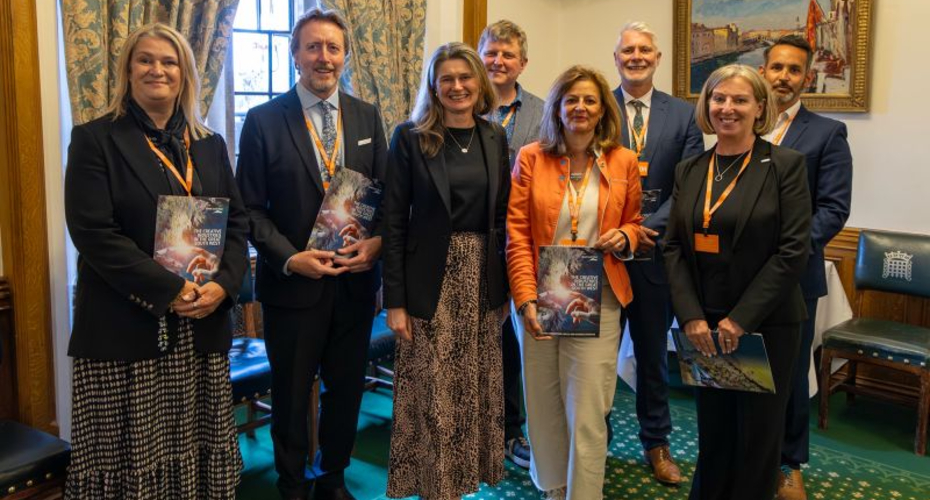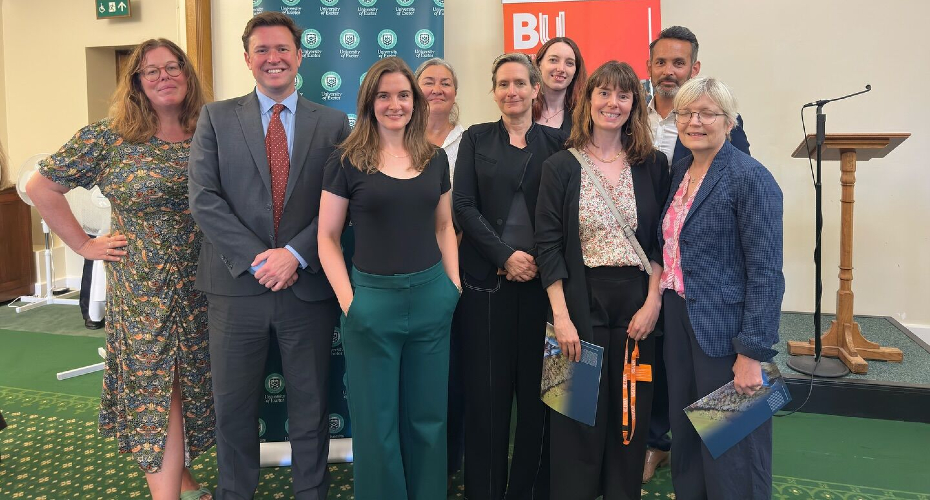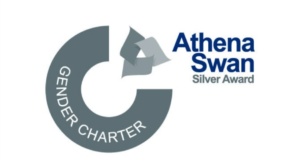The Great South West becomes the UK’s fastest-growing creative powerhouse

University leaders have unveiled a new report revealing how the South West is now the fastest-growing region in the UK for the Creative Industries.
Representatives from the six higher education institutions in the region, including the University of Exeter, attended the House of Commons this week to launch the report, entitled ‘Creative Industries in the Great South West: Leading from the Edge’.
Thanks to new research, the report details how the Great South West is outpacing even London with a remarkable 4.1% compound annual growth rate, generating £2.7 billion in annual GVA (gross value added) through more than 15,870 creative businesses, 35,000 employees, and an estimated 40,000 freelancers.
University leaders say this robust data could be transformative for the way the region is perceived on a national stage, and could place the Creative Industries on a similar footing to other acknowledged sectors of strength such as marine science and technology, renewable energy, agriculture, aerospace, digital innovation, and environmental science and conservation.
“The Great South West isn’t just the UK’s fastest-growing creative region, we’re proving that world-class innovation can thrive beyond London and other major metropolitan cities,” said Dom Jinks, Head of Creative Industries at the University of Exeter. “With every creative job generating 1.9 additional jobs across adjacent industries, we’re not just building a creative economy, we’re catalysing the future of cross-sector innovation.”
The event in Westminster was hosted by Jayne Kirkham, MP for Truro and Falmouth, and organised by Professor Emma Hunt, Vice-Chancellor of Falmouth, in her capacity as Chair of the Great South West’s Higher Education Working Group. It was designed to showcase the strengths of the emerging consortia and their industry partners across Devon, Cornwall and Dorset.

Following the recent release of the UK Government’s Industrial Strategy for the sector, the event also welcomed the declaration from the Great South West’s Higher Education consortia of their ambitions towards the next wave of Arts and Humanities Research Council’s Creative Industries Clusters Programme, with Exeter as the leading institution for that bid.
The University, whose city boasts a UNESCO City of Literature, will utilise its strengths in research and development to champion the rapidly growing region, in collaboration with its partners, to nurture both established and emerging areas of creative sector expertise. Collectively, the GSW universities have attracted £33.6 million in creative-sector research funding and graduate almost 7,000 students annually in Creative Industries and CreaTech-relevant subjects.
Exeter has also played an instrumental role in establishing the new Screen Devon agency to match that of Screen Cornwall, and the creation of the first-ever HEI-owned film distribution label, eXeFilms. This year also welcomes the launch of the University’s new MA in Creative Industries in Drama, and MA Interactive Storytelling Design: Video Games and Beyond in Communications in English and Creative Writing, and significant investment in new facilities and technology to support students and researchers in the Creative Industries field.
Professor Will Higbee, Associate Pro-Vice Chancellor for Business Engagement and Innovation in the Faculty of Humanities, Arts & Social Science, emphasised the region’s strategic potential, saying: “We have the research excellence, industry partnerships, and proven track record—now we need strategic national investment to match our momentum. The Great South West is ready to lead the next generation of creative innovation and deliver sustainable, place-based growth that benefits the entire UK economy.”
As a keynote speaker at the event, Caroline Norbury OBE, Chief Executive of Creative UK, who greatly advocated for the consortia and region, said: “The Government’s recent Creative Industries Sector Vision rightly recognises that this sector is one of the UK’s greatest growth opportunities. But to realise that potential, we need to back creative talent in every part of the country.
“The Great South West shows what’s possible when local ambition, world-class education, and national policy work together. This region’s creative industries are thriving — with the right support, they can go even further, driving jobs, innovation and cultural impact across the UK.”
The six universities that released the report are the University of Exeter, Arts University Bournemouth, Arts University Plymouth, Bournemouth University, Falmouth University, and the University of Plymouth, working in collaboration with the Great South West Pan-Regional Partnership.
It was created by research consultants Joanne Evans, Miriam Quick and Fiona Waters, and can be accessed on the Falmouth University website.



